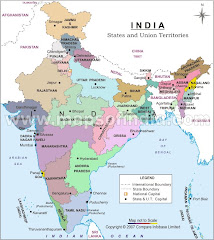Organizations must be very particular about having a reliable network for security on data transmission; this can be achieved by incremental outsourcing where both the parties will be agreed upon terms and conditions in the form of service level agreements that includes assurance of the network by the vendor. This is nothing but remote infrastructure management where the network vendor will be responsible for a reliable data transfer. The infrastructure management also involves in monitoring LWAN, WAN, communication networks to obtain a smooth functioning of business processes and storage infrastructure that includes maintenance of storage devices, data centers and servers. The outsourcing companies should have a 24x7 support for infrastructure management to have a continuous functioning of business processes avoiding downtime and troubleshooting. This results in a stupendous cost savings for the clients and vendors.
The companies that deal with hundreds of projects every year need to have cutting- edge technologies to keep track of the projects being executed or still in the development stage or might have failed. To have all this tracked, the company’s knowledge base should be accessible efficiently and this can be achieved by having excellent business intelligence. The business intelligence and data warehousing makes the hidden assets visible and facilitates in decision making.
The project failures can be avoided by
Building a good team - The onsite project managers should have excellent leadership skills and also project management experience. The onsite and offshore resources should be integrated and must operate smoothly.
Defining roles and responsibilities – communication roles and responsibilities should be defined accordingly between the onshore and offshore teams.
Well defined processes and methodologies – implement RUP (Rational Unified Process) based project management methodologies, do not be persuaded by the vendor to have these defined later.
Pay attention to details - The requirements for the projects need to be mentioned explicitly to the offshore team; do not summarize the intent without listing all the parameters and necessary processes clearly.
Metrics – Both the performance metrics and the acceptance criteria should be defined before the project has started. Till the end of the project measure the performance of the offshore team regularly.
Exit strategy – There are possibilities for things to go wrong anytime during the project’s life cycle, make sure that there is an exit from this by involving the offshore to minimize damage.
In outsourcing companies like Infosys where staff turnovers are common, the companies should maintain a proper knowledge base about the customer’s requirements for the projects; this will be helpful for the next employee that takes the position. The economies of scale for a company does not come from assigning multiple projects to the employees but comes from reusing the components already developed. Projects require a variety of software tools for development, Infosys should follow SAAS (Software as a Service) model where the software can be obtained on the internet instead of having it installed.This reduces a lot of costs incured by buying the original software that is used to implement just one project.
The knowledge base can be utilized effectively by having an enterprise resource plan (ERP) software. This system integrates all the departments of the organization fetching data from the knowledge base and data warehouse making it available to the respective department. This will reduce the communication gap among employees working in different departments.
ERP software integrates the functional departments helping the organization in making strategic planning and helps in maintaing management control. This reduces the operational costs that include lower marketing costs, lower help desk support and lower production costs. Another benefit from ERP is the day to day management can be facilitated without any disruptions. The software keeps track of the actual cost of the activity and also performs activity based costing.

The ERP software has various modules like ERP production module, ERP purchasing module, ERP sales module, ERP inventory control module, ERP financial module, ERP HR module and ERP marketing module, where each module represents a functional unit of the organization. The organizations must implement these modules which are economically and also technically feasible as it reduces risks and failures for projects due to structured coordination provided by ERP.
The following lists the criteria for the software project success in order of importanace:

http://www.e-zest.net/Outsourcing_Central/outsourcing_issues.html
http://machrotech.com/Offshore_Outsourcing/Offshore_outsourcing_issues_vendor.asp
http://www.articlesbase.com/outsourcing-articles/software-outsourcing-india-367334.html
http://www.informationweek.com/news/globalcio/showArticle.jhtml?articleID=202801664
http://www.softwareprojects.org/disadvantages-outsourcing.htm
http://www.cio.com/article/31967/The_Risks_Associated_With_Offshoring_Software_Development_
http://blogs.zdnet.com/projectfailures/?p=258



No comments:
Post a Comment